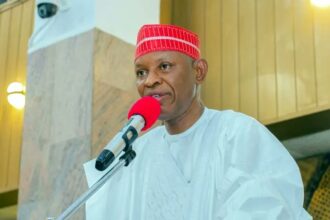The Academic Staff Union of Universities (ASUU) has urged the Federal Government to significantly boost funding for public universities, stressing that sustained investment in education is the only lasting solution to frequent strikes and the key to improving Nigeria’s global university rankings.
Speaking before the Senate Committee on Tertiary Institutions and TETFund at the National Assembly on Friday, ASUU warned that the problems facing higher education would persist without consistent financial commitment. ASUU President, Chris Piwuna, who represented the union, explained that the ongoing two-week warning strike was driven by unresolved issues dating back to 2011. “We engaged the Federal Government for eight years without tangible results. The Yayale Ahmed Committee report, submitted in December 2024, was ignored until this industrial action began,” Piwuna said.
He outlined the union’s core demands, including sustainable funding, better working conditions, revitalisation of public universities, and the protection of academic autonomy. ASUU also urged the Senate committee to hold the government accountable for providing adequate funding.
“Try us. Push government to fund universities adequately and you’ll see the end of strikes and improvement in our universities’ global rankings,” Piwuna told the senators. On delayed funding, he revealed that while the National Assembly approved N150 billion for universities, only N50 billion has been released so far. He alleged that the remaining funds were being held by the Ministry of Education, where plans were underway to divide the amount among universities, polytechnics, and colleges of education, despite each having separate allocations.
He warned that the N150 billion earmarked for universities must be used solely for that purpose. According to Tribune Online, ASUU declared a two-week warning strike beginning October 13, citing unresolved issues including lecturers’ working conditions, the 2009 FGN-ASUU agreement, the release of withheld salaries, and sustainable university funding. The Federal Government, however, insists it has met the union’s demands and remains open to further dialogue to prevent escalation, but has implemented the no-work, no-pay policy in response to the strike.
Source: https://tribuneonlineng.com/











